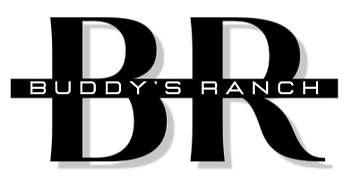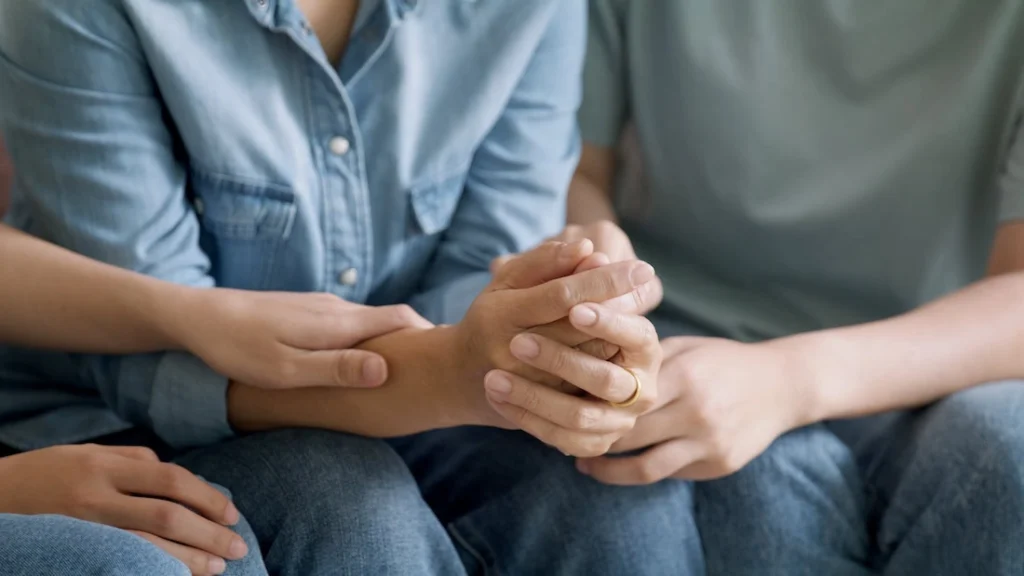Alcohol abuse functions like a disease that infects the entire family system. It erodes trust and communication, creates financial instability, and forces family members into unhealthy roles—like The Enabler or The Scapegoat—to cope with the chaos. The impact on children is particularly severe, as living with a parent with alcohol use disorder increases their risk for emotional and behavioral challenges.
At Buddy’s Ranch, we believe true healing involves the whole family. The work a client does is not just for them; it’s the first step in your family’s recovery, too. We provide family therapy and resources designed to help heal the broken trust and teach new, healthy ways of communicating. Their journey to sobriety is a path toward helping your entire family system become healthy again.
How Does Alcohol Abuse Affect Families?
“How does alcohol abuse affect families?” is a question that is often thought about but not always talked about. Like other addictions, alcohol abuse has ripple effects that are not always visible. Beyond impacts to the individual, alcohol misuse can undermine emotional bonds, breed instability, and leave lasting scars on children, partners, and the broader family unit. At Buddy’s Ranch, we understand that healing happens not only within the individual but throughout the family system.
The Impact of Alcohol Abuse on Families
Alcohol abuse affects families in nearly every area of life. SAMHSA (Substance Abuse and Mental Health Services Administration) estimates that approximately 10.5% (7.5 million) of U.S. children ages 17 and younger live with a parent who has alcohol use disorder. This increases one’s risk for emotional, behavioral, and mental health challenges, and may also elevate the risk of child abuse and neglect. In 2016, the National Survey of Child and Adolescent Well-Being reported that “past-year SUDs increased the occurrence of child physical abuse by 562%; emotional abuse by 329%; and neglect by 140%.”
Children growing up in these environments frequently face depression, anxiety, academic struggles, and an increased likelihood of substance use later in life. Alcoholism within families can foster codependency, impair emotional bonding, and make recovery harder.
Emotional and Financial Strain on Families
Alcohol abuse affects families emotionally and financially. It can bring a heavy financial burden through missed work, job loss, and the cost of legal issues or medical care, quickly draining savings and creating long-term instability. According to the National Institute on Alcohol Abuse and Alcoholism (NIAAA), alcohol-related problems cost the United States nearly $249 billion each year. Financial pressure can increase tension in households and relationships, lead to arguments, and cause additional stress for children and partners.
Emotional strain often builds alongside financial hardship, and family members may feel anger, sadness, or hopelessness. Over time, these combined pressures make it even more important for families to seek support and begin the recovery process together.
Alcohol Addiction Treatment at Buddy’s Ranch
Alcohol abuse can hurt families in many ways. It can break trust, make it harder for family members to understand each other or express their feelings, and can lead to repeated problems. However, recovery is possible, and it is most effective when it addresses these systems, not just the individual. If your home is experiencing alcohol’s impact, Buddy’s Ranch offers compassionate, family-aware treatment that supports healing for everyone.
FAQs Answered: How Does Alcohol Abuse Affect Families?
Can family therapy help in recovery from alcohol abuse?
Yes. Family therapy can play a vital role in recovery by addressing the ways alcohol misuse affects the entire household. It provides a safe space for family members to share their experiences, rebuild trust, and learn healthier communication skills. According to SAMHSA, involving families in treatment can improve recovery outcomes. Family therapy may include education about addiction as a chronic illness, guidance on setting boundaries, and strategies to prevent relapse. At Buddy’s Ranch, we offer Family System Therapy (FST), which involves family members in sessions to improve communication and address patterns of dysfunction. By working together in therapy, families can break unhealthy patterns, strengthen emotional bonds, and develop practical ways to support both the individual in recovery and each other, increasing the likelihood of long-term success for the whole family unit.
What is an “enabler,” and can family members become enablers without realizing it?
An “enabler” is someone who does something for someone else that they should do for themselves. It is often motivated by care or protection, but it allows another person’s harmful behavior to continue. Enabling can hinder the recovery process of someone who is experiencing addiction by:
- Taking away learning experiences they need so they can choose to change.
- Allowing them to remain dependent on someone (sometimes a parent/child relationship) rather than acting as independent, mature adults.
- Helping them to continue an addictive lifestyle because someone else always rescues them from the consequences of their choices.
In families affected by alcohol abuse, enabling might include covering up for the person’s mistakes, giving them money, taking over responsibilities they’ve neglected, or minimizing the severity of their drinking. Many family members don’t realize they’re enabling because they think they are helping to avoid conflict.
How can family members find support for themselves if a loved one is struggling with alcohol abuse?
Families have several options for finding help when alcohol misuse impacts their home. Support groups like Al-Anon and SMART Recovery Family & Friends offer guidance, peer understanding, and strategies for managing the challenges of living with a loved one’s addiction. Online resources from organizations like the National Institute on Alcohol Abuse and Alcoholism (NIAAA) and SAMHSA provide educational tools, self-care tips, and helplines. Seeking support early can reduce stress, prevent burnout, and equip families with healthier coping strategies.
Can alcohol abuse cause mental health issues in family members?
Yes. Alcohol abuse in the home can create a stressful, unpredictable environment. Children may experience chronic worry, fear, or low self-esteem, while partners or caregivers often develop emotional exhaustion or symptoms of secondary trauma, a condition that has trauma-related symptoms. Living with alcohol misuse can disrupt sleep, social connections, and the overall sense of safety, which can worsen mental health challenges.
For families seeking help, what is a good first step?
The first step is acknowledging that alcohol abuse is affecting the family and deciding to take action. This may involve having an honest, nonjudgmental conversation with the loved one about concerns, or reaching out to a trusted professional for guidance. SAMHSA’s National Helpline (1-800-662-4357) is a free, confidential resource that connects families with treatment options and local support services.
If you’re not ready to confront a family member directly, sometimes attending a family support group can provide education, coping strategies, and emotional reassurance. While easier said than done, acting sooner rather than later can prevent further harm, strengthen relationships, and open a path to recovery for the person struggling with alcohol and the family.





